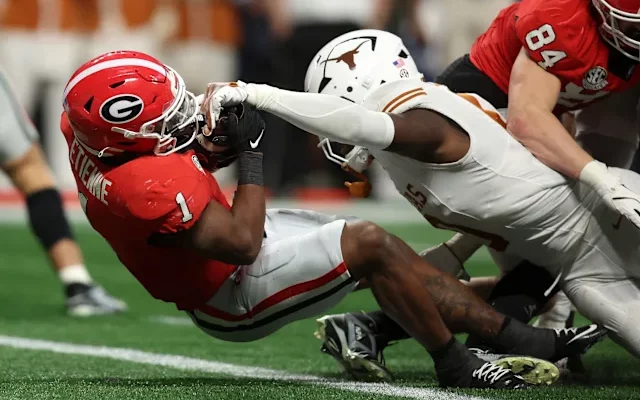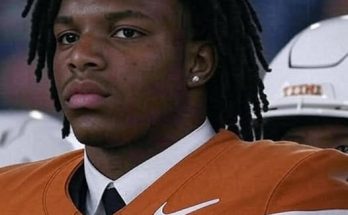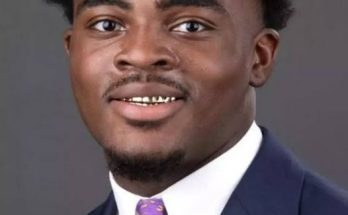The Georgia Bulldogs, one of the most respected programs in college football, have once again found themselves in the middle of controversy following the news that one of their offensive linemen is facing serious legal trouble. Reports indicate that the player has been charged with multiple offenses, including felony possession of marijuana, casting a long shadow over both his personal future and the immediate outlook of the team. As the Bulldogs prepare for another championship-contending campaign in 2025, this incident disrupts the rhythm of an offseason that was otherwise humming with optimism, focus, and preparation.
The player in question, a towering presence on the offensive front, was expected to compete for significant playing time this season, if not a starting role outright. Georgia has prided itself in recent years on its ability to develop linemen who dominate the line of scrimmage—physical, intelligent, and disciplined trench warriors who set the tone for the Bulldogs’ run-first, punishing style of play. Any disruption to that unit—particularly one involving a legal issue of this magnitude—could ripple through the team’s performance and mentality.
According to police reports, the incident took place in Clarke County, where the lineman was stopped by local authorities for a routine traffic violation. Upon further inspection, officers reportedly discovered a significant quantity of marijuana in the vehicle, well beyond the amount typically associated with personal use. As a result, felony charges were filed, in addition to potential misdemeanors that include improper lane usage and a possible concealed weapon violation, although details on the latter remain unconfirmed. What is confirmed is that this case could carry severe implications not only for the athlete involved but also for Georgia’s legal and disciplinary response under head coach Kirby Smart’s program guidelines.
The University of Georgia has not yet released an official statement, though insiders close to the program suggest a suspension is likely imminent. Georgia, like most SEC schools, follows both school and NCAA policy on student-athlete conduct, particularly when it comes to criminal charges. Felony-level offenses tend to trigger an automatic suspension pending the outcome of a full investigation. That said, each case often includes nuance, and legal outcomes sometimes shift based on plea agreements, reduced charges, or alternative sentencing strategies.
Still, the optics alone are troubling for a program that has seen its fair share of off-field issues over the last several seasons. While Kirby Smart has built a dynasty in Athens with national titles and elite recruiting hauls, the off-field discipline of his players has come under scrutiny. Several players have been involved in legal troubles ranging from traffic violations to more serious criminal allegations. Though Smart has maintained a hard-nosed public stance against such behavior, critics argue that not enough is being done to address the underlying culture. Supporters, on the other hand, point to the overall discipline, academic performance, and NFL readiness of the majority of Georgia’s athletes as proof that the program remains among the most elite and well-run in the country.
This incident will likely reinvigorate those debates, especially given the timing. Fall camp is just around the corner, and the offensive line was already entering a phase of transition. With several veterans having moved on to the NFL, including Amarius Mims and Sedrick Van Pran, younger players were expected to step up and seize their moment. This lineman, standing at over 6-foot-5 and tipping the scales above 320 pounds, had been receiving rave reviews from coaches for his athleticism, intelligence, and technical progression. Losing him—even temporarily—disrupts those plans and could force reshuffling along the depth chart.
From a legal standpoint, felony marijuana charges in the state of Georgia are no small matter. Depending on the quantity found, charges can escalate quickly, and penalties may range from heavy fines to potential jail time. First-time offenders may qualify for pre-trial diversion programs or conditional discharge if certain criteria are met, but even then, the record may not be expunged entirely. For a student-athlete, this can significantly hinder not just playing time but also NFL aspirations and NIL opportunities.
NIL is another part of the equation that can’t be overlooked. The modern college football landscape is heavily influenced by Name, Image, and Likeness deals, and companies are hesitant to affiliate their brands with athletes facing felony charges. A player involved in a legal situation of this magnitude could see immediate suspension of NIL partnerships, drying up income streams that many athletes rely on. It also raises questions about how collectives and school-affiliated businesses vet and monitor the behavior of their athlete-partners.
Teammates have reportedly expressed a mix of shock and disappointment, with one player anonymously quoted as saying, “We’re like a family, and when someone gets into trouble like this, it hurts all of us. But we’ve got to stay locked in and stay focused on what’s ahead.” Leadership within the locker room, particularly among veteran linemen and team captains, will be key in keeping morale intact while the coaching staff works through how to address the incident publicly and internally.
Kirby Smart now faces a complex challenge—upholding the program’s standards of conduct without appearing draconian, while also keeping team cohesion strong and maintaining trust among players, recruits, and fans. It’s a high-wire act that requires both firmness and empathy. Smart has shown a willingness to suspend players in the past, but he’s also been pragmatic, balancing second chances with accountability. How he responds this time could be telling, especially with a season full of national championship implications on the horizon.
For Georgia fans, the news is a bitter pill to swallow. Hopes for another title run are high after a strong finish last year and an elite 2025 recruiting class. Every detail of the preseason matters when you’re competing at the margin with schools like Alabama, Michigan, and Texas. A legal scandal—even involving just one player—can create distractions that no amount of coaching can completely erase. Beyond the impact on the field, such stories invite scrutiny from media, rival fanbases, and future recruits.
The recruiting trail itself could also feel the effects. Rival schools may use this incident to sow doubt in the minds of top prospects, painting Georgia as a program with a discipline problem. Perception matters in college football, and even isolated incidents can be spun into larger narratives by media outlets and recruiting analysts. Georgia’s coaches will need to do damage control, reiterating their commitment to player development, accountability, and long-term success—on and off the field.
From a broader perspective, this incident is part of an ongoing conversation in college athletics about athlete behavior, legal accountability, and marijuana policy. As more states legalize or decriminalize marijuana, questions arise about whether antiquated laws are harming athletes more than helping them. Some argue that student-athletes should not be punished as harshly for marijuana-related offenses, especially when usage is increasingly normalized across professional leagues like the NFL and NBA. Others maintain that rules are rules, and that scholarship athletes must be held to a higher standard due to their visibility and influence.
The NCAA itself has softened its stance on cannabis in recent years, raising thresholds for positive tests and focusing more on education than punishment. But in states like Georgia, where marijuana possession is still treated seriously under the law, athletes remain vulnerable to charges that can derail careers. Until federal law changes—or until schools institute more uniform, rehabilitative approaches—cases like this one will continue to make headlines and stir debate.
For now, Georgia will attempt to shift focus back to football, though this cloud will likely linger into the fall. The charged lineman’s legal process will play out in the coming weeks and months, with arraignment, hearings, and potentially a trial or plea deal on the horizon. How quickly those proceedings move will depend on many factors, including legal counsel, court scheduling, and the player’s prior record.
What is certain is that this moment represents a crossroads—not only for the young athlete involved but also for a Georgia program looking to maintain its elite status without sacrificing its values. The hope, within Athens and beyond, is that the player learns from this experience, the program addresses it with integrity, and the Bulldogs emerge with their unity and purpose intact. Only time will tell if those hopes are realized.



